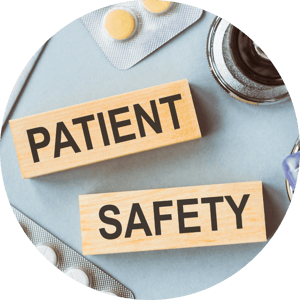 Patient safety is always the top priority, and there are many programs in place to support continuous improvement. As a consultant with POCP and subject matter expert on the CodeX REMS use case, one area that has captured my attention is Risk Evaluation and Mitigation Strategies (REMS) - programs designed to manage known or potential serious risks associated with certain medications.
Patient safety is always the top priority, and there are many programs in place to support continuous improvement. As a consultant with POCP and subject matter expert on the CodeX REMS use case, one area that has captured my attention is Risk Evaluation and Mitigation Strategies (REMS) - programs designed to manage known or potential serious risks associated with certain medications.
REMS involve critical activities like communication plans, elements to assure safe use (ETASU), implementation systems, and effectiveness assessments. However, managing these complex programs has traditionally been incredibly challenging, often requiring manual processes and disparate data sources, leading to inefficiencies and risks.
This is where automation becomes a game-changer. By leveraging cutting-edge technologies to streamline and automate REMS processes, organizations can enhance patient safety, boost operational efficiency, and better meet regulatory requirements. Automation standardizes workflows, reduces errors, and delivers real-time insights for more informed decision-making - ultimately improving patient outcomes.
Through initiatives like CodeX, HL7, and NCPDP, we are promoting standardized practices for interoperability and seamless data exchange. Recently, I had the privilege of participating in the HL7 Connectathon, where the REMS Integration use case showcased the power of community collaboration. Excitingly, we are gearing up to ballot the patient enrollment Implementation Guide in May - a significant milestone.
I've also contributed to the REMS Innovation Consortium, where industry trailblazers convene to explore innovative patient care solutions. By rethinking traditional REMS approaches, we can pave the way for groundbreaking advancements that prioritize patient safety and operational excellence.
Collaboration is paramount as well as support from regulatory authorities and standards organizations. This unified approach empowers us to navigate evolving regulations while upholding our commitment to enhancing patient safety.
The exceptional work of the CodeX community is propelling REMS automation forward. I am proud to be part of this transformative endeavor.
Additionally, the NCPDP foundation grant awarded to Infowerks has injected incredible momentum into our REMS automation journey. We are thrilled about this innovative pharmacy solution's potential to foster interoperability and streamline REMS processes as never before.
As the industry embraces cutting-edge technologies like AI and machine learning, the prospects for REMS automation to unite stakeholders across the healthcare ecosystem are boundless.
If you’d like to learn how REMS automation can benefit your organization or perhaps you wish to contribute your expertise? I encourage you to reach out to me at kelee.petzelt@pocp.com . Together, we can unlock REMS automation's full potential and usher in a new era of efficient, collaborative, and patient-focused healthcare delivery.




